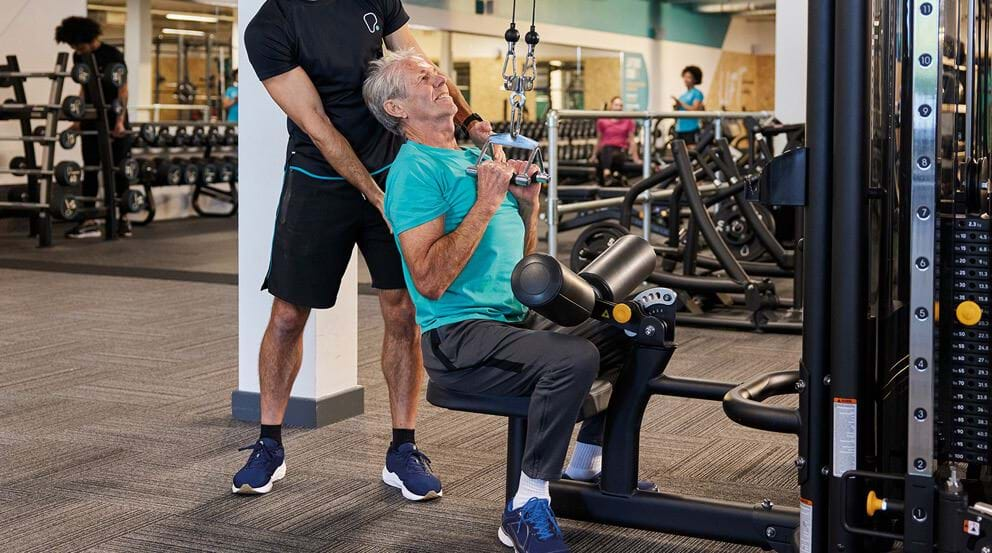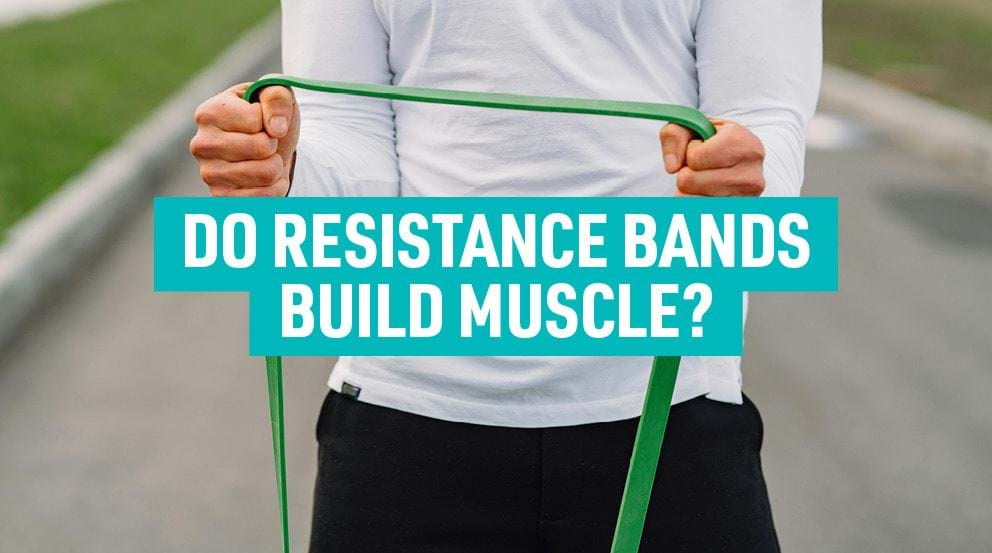What Happens to Your Body When You Return to Working Out After a Break?

Taking regular rest days, and having a bit of time off from your workout regime can be good for your body - a break from the stress gives your muscles time to recover. However, longer breaks from exercise and the gym, whether that’s three months, six months, a year or more, can have a greater impact on your body. This, in turn, will mean your return to the gym could feel very different.
With many people returning to the gym after a prolonged lockdown break, it’s possible that your body won’t feel the same. Read on to find out more.
What effect will a break from exercise have had on your body?
If you're regularly working out and exercising, you'll experience a host of fantastic benefits, including (but not limited to): stronger muscles and bones, improved energy levels, reduced risk of chronic diseases, weight control, improved mental health, boosted sleep, lower blood pressure and a more efficient cardiovascular system. By working out regularly for more than a few weeks, you'll likely be enjoying several of these fantastic perks, some without even realising.
Skipping workouts for a few days, or even a week, is unlikely to have much of an effect on your body, particularly if you're fit and healthy. The biggest impact of missing a week or two here and there is likely to be on your ability to stick to the habit of regular exercise.
So what happens if you then take a longer break from regular exercise? Perhaps you've had an injury, a major life change or simply dropped out of the habit (or perhaps there's been a worldwide pandemic that's knocked you a little off your work out game) - what's been happening to all those health benefits while you've been having a long rest?
There are a lot of variables for each individual that could result in different effects - how long had you been working out before your break? What were you fitness levels like before? How long has your break been? So, now we're going to have to make a few assumptions - the following will be particularly relevant if you previously had a fairly good level of fitness, were working out consistently at least 2 times a week and have had a longer break of, say, three months or more.
Over time, you could start to experience:
- A decline in aerobic conditioning
Exercise helps to keep your heart strong, enabling it to efficiently pump blood around your body. Over time, without exercise, your heart could gradually start to weaken, which, in turn, could lead to rising blood pressure (especially if you were using exercise to keep your blood pressure lower) and, given more time, an increased risk in cardiovascular diseases.
- Shortness of breath
Regular exercise makes your muscles more efficient and boosts the body's ability to effectively use oxygen (referred to as VO2 Max). This means you're less likely to feel out of breath, as you need less oxygen for any given exercise. If you were previously enjoying the benefits of this as a result of regular exercise, you may start to notice a difference in your breathing capacity after a long break. This means you could feel out of breath at times you wouldn't have done before.
- Endurance loss
The decline in aerobic conditioning and the lowered VO2 Max can both lead to a loss of performance ability, often one of the quickest things you could notice. Perhaps groceries will feel heavier, or you'll notice climbing the stairs takes its toll a little quicker than before, you may simply feel more tired by the end of the day or won't be able to walk as far or fast without needing a break.
- Muscle loss
Muscle loss, won't happen overnight. In fact, it could take over 12 weeks to really start to see any major differences. However, from around two weeks after stopping exercising you could begin to see some very gradual muscle tissue loss, also known as atrophy. Over time this could lead to lower strength, poorer balance and an increased risk of injury.
- An emotional dip
It's well known that exercise can have a positive effect on mental health and emotional wellbeing. The endorphins released from a workout can help boost mood, and setting and achieving fitness goals is an excellent way to improve your confidence and motivation. It can also lead to better sleep and is an all-round healthy way to keep stress levels down. Many people who suddenly stop exercising become aware of the emotional effects before the physical really become noticeable, and people report feeling a decline in their own sense of 'get up and go'.
- Weight gain
Many people use exercise to control their weight, as it helps to burn calories and fat. If you're used to working out regularly and then stop, there's a possibility you could gain some weight, especially if you're not changing your diet to reflect the shift in activity.
What will happen when you restart working out after a break?
Again, it's important to note that everyone is different, but it's highly likely that if you've had a long break from the gym, getting started again is going to offer a new set of challenges. Examples you could experience include:
- Drop in performance
When you head for your first workout, it's likely you'll experience a shift in your ability. It could be you can only run for half the time you could before, or your lifting strength feels much weaker. You could feel more out of breath, experience the muscle shakes much sooner than usual and generally feel more exhausted by the end of your workout.
- Decreased confidence
A drop in performance, and a lack of access to the gym, could also have an effect on your confidence when you start working out again. Many people report having to build themselves up to the same level of surety, as you remind yourself of how everything works, retrain your muscles and rebuild your cardio abilities.
- Severe DOMs
Your weakened muscles will almost definitely feel the heat the first few times you return to the gym. It's more than likely you'll experience extreme muscle soreness (also known as DOMS) after your first few workouts.
- Increased likelihood of injury
As your muscles and bones may not be as strong as they were previously, you could be more prone to losing your balance or injuring yourself.
But it's not all aching muscles and a drop in endurance, there are so many positives to getting back into the gym. As you return to exercise and working out, you should experience:
- A feeling of achievement
So you may be a bit more achy than you were before, and you may be a little bit more out of breath, but the challenge is part of the fun! You've started exercising again, and that's something to celebrate - getting your body moving will help negate most of the potential challenges and make you remember what it is you used to love about getting in shape.
- Regular improvements
While you may have a dip at first, it really shouldn't take you too long to get back into your old stride, particularly when it comes to the weight you're able to lift. Your body has an excellent way of bouncing back and, with a structured plan, you'll be able to enjoy seeing those gains and improvements each week as you build your abilities back up.
- An abundance of health benefits
All those ways your body was missing out on exercise? You'll be battling all of those. By taking the steps to get back into exercise, you'll be keeping your body healthy and making the most of all the incredible benefits of working out.
How can you ease your way back into exercise after a break?
The most important step is to ease your way back in gently. Don't push yourself too hard or you could hurt yourself. Set plans carefully to build your way back up to your previous fitness level - it may take a few weeks, but it's better to take your time than cause an injury and end up having to have another extended break.
We have some useful guides on our blog to help you ease back, so make sure to check out the following links:
If you're heading back to the gym and not sure how to approach your return to fitness, you could benefit from a few sessions with a Personal Trainer - they'll be able to support you as you find your feet again.


